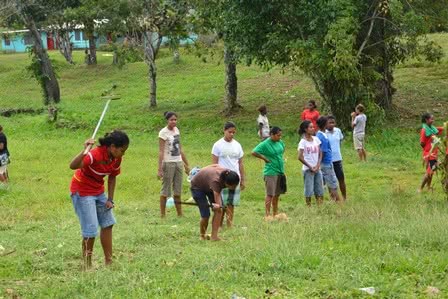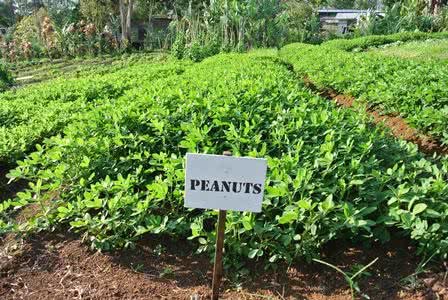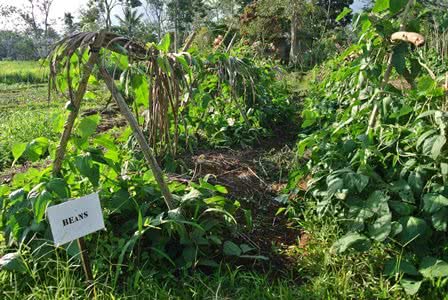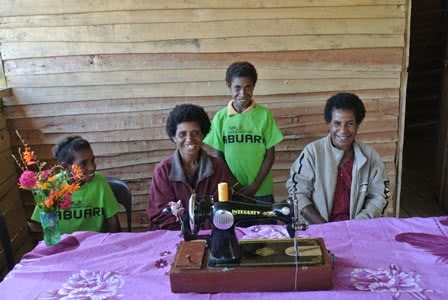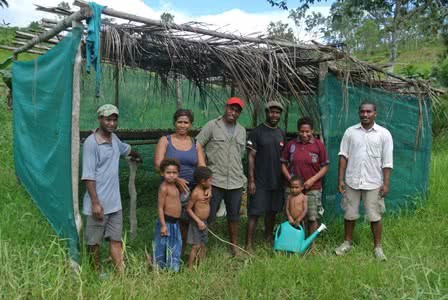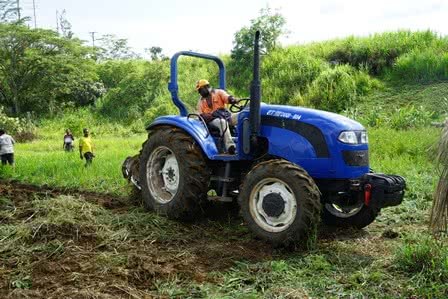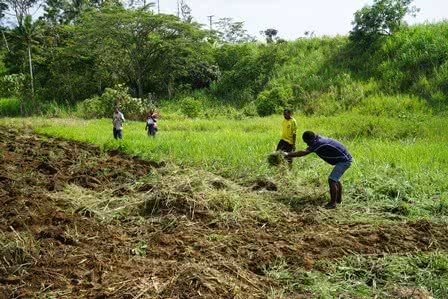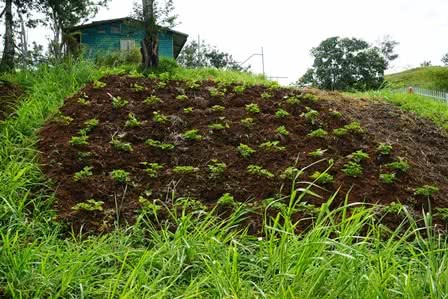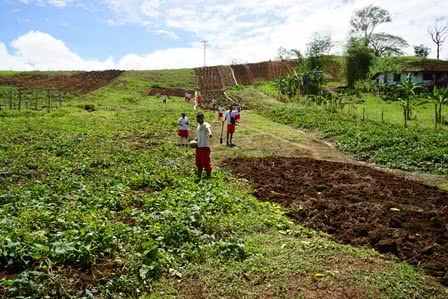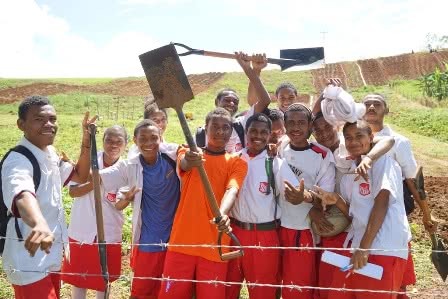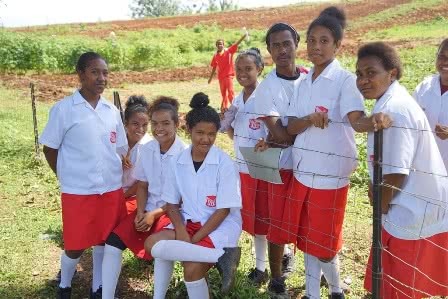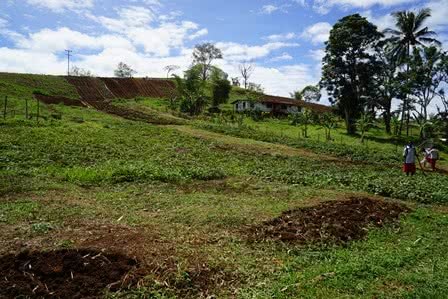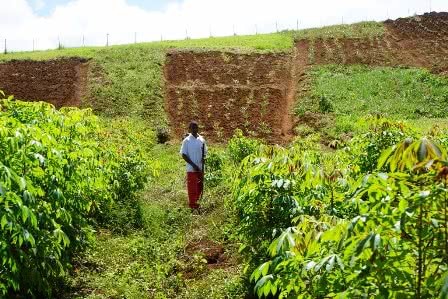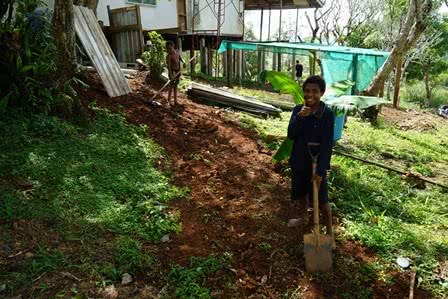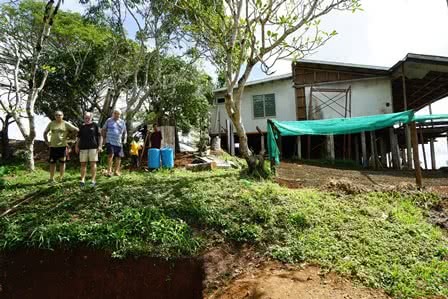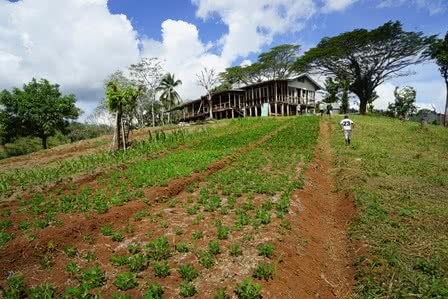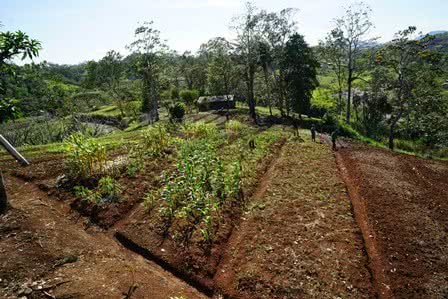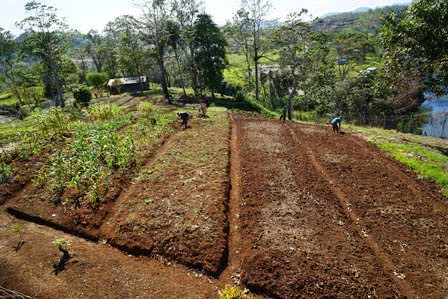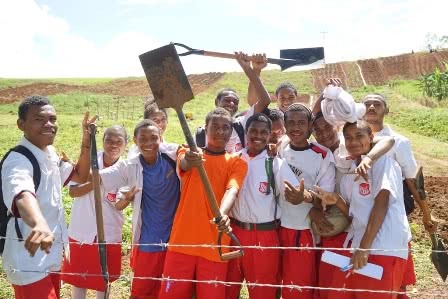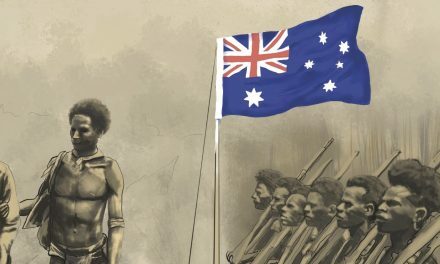In 2008 Adventure Kokoda funded the establishment of Network Kokoda as a not-for-profit charity to honour the legacy of our Kokoda veterans and the PNG Wartime Carriers. Network Kokoda has since been approved as a Developing Country Relief Fund which provides allowable taxation deductions for donors.
We subscribe to the principles developed by the PNG Department of Community Development which, according to former Minister, Dame Carol Kidu DBE, are based on local communities working together to develop sustainable initiatives which generate income to invest in their future.
Network Kokoda initially engaged the services of Mr Sandy Lawson BSc (Agric) as a consultant to engage local community leaders in the Sogeri area and report on a proposal to develop Agricultural Learning Development Centres in the area. Mr Lawson has more than 25 years’ experience in agriculture in PNG and is fluent in both Motu and Tok Pisin.
As a result of Mr Lawson’s recommendation Network Kokoda engaged a young graduate of the Popondetta Agricultural College, Mr Oggie Erehe as a Field Manager. Mr Erehe was born in Kokoda and has a diploma in Tropical Agriculture from the University of Natural Resources and Environment in Popondetta. Network Kokoda are funding his ongoing studies to allow him to obtain his degree in Tropical Agriculture through the University of Technology in Lae.
The Australian Board is chaired by Brigadier Phil McNamara OAM (Ret). The Executive Officer is Lieutenant Colonel Rowan Tracey (Ret). Both served as officers with the Pacific Islands Regiment in Papua New Guinea during their army careers and are fluent in Tok Pisin.
The PNG Board is chaired by The Hon Charlie Lynn OL. The Board of Directors includes The Hon Dame Carol Kidu DBE and Marianna Ellingson, Secretary to the PNG Minister’s Office of Tourism, Arts and Culture.
The most challenging task in the development of village learning centres is to encourage local people, clans and communities to work together. The initial phase involves much discussion, many meetings, trust, mutual obligation, partnerships and a path to local ownership.
We believe agriculture is the most effective gateway to community development along the Kokoda Trail. We therefore aim to change the subsistence mindset of villagers to one of business entrepreneurship and have established a partnership with the Sogeri National High School and Iaowari High School to establish market gardens at each school to improve the nutrition of boarding students and to demonstrate the economic benefits of marketing produce to local communities.
One of the major challenges we have faced over the years is getting individuals and clans to work together. This is understandable in a country where more than 80 per cent of the population rely on subsistence agriculture and have limited educational opportunities.
Informal research at the boarding schools we support on the Sogeri Plateau has revealed that students do not regard agriculture as a preferred subject – they see it as a subsistence necessity. They prefer subjects that will enhance their employment opportunities in Port Moresby.
A major impediment to agricultural development in remote villages along the Kokoda Trail is limited access to markets. When we first became engaged with the area in the early 1990s Milne Bay Air since rebadged to Airlines PNG) used to operate a thrice weekly ‘milk-run’ between Port Moresby-Menari-Efogi-Kagi-Kokoda to transport local produce to markets in the nation’s capital. Village airfields were crowded with people and produce on the scheduled flight days.
Mining and gas developments over the past decade have diverted PNG airlines towards meeting the more lucrative demands of industry. Kokoda Trail villagers have therefore reverted to subsistence crops to meet the need of their local clans.
The Sogeri area used to be the food bowl for our troops in Port Moresby during the war. It has great potential to meet a greater share of the increasing demand in the National Capital tomorrow if local communities can be encouraged to work together.
Network Kokoda has facilitated this process by engaging a PNG graduate of the University of Natural Resources and Environment in Popondetta as a Field Manager. Market gardens have since been established at the Sogeri National High School and Iaowari High School. Up to 1,200 boarding students are now receiving fresh produce on their menu as a result and a greater awareness of agriculture as a result of their involvement in the program.
Local clan leaders on the Sogeri Plateau have approached the Network Kokoda Field Manager over the past two years to seek assistance in developing similar gardens in their villagers and in getting their produce to markets. Partnerships were established with Network Kokoda providing a seed nursery, seedlings, technical advice, transport and cold storage. Clan leaders provide land and labour. As of 1 September 2015 Network Kokoda have six villages on the Sogeri Plateau now under production.
In 2014 Network Kokoda secured a lease on a hectare of land at Sogeri for an agricultural training centre. The facility will be officially opened in early 2016 and will be used for practical programs in agriculture as well as skill development programs relating to marketing, cooking, sewing and personal/community leadership.
We have recently installed a cool-room and freezer at our Sogeri Training Centre together with an area or receive, clean and store fresh produce from local farmers. We provide two deliveries per week to supermarkets in Port Moresby and are currently having difficulty keeping up with demand because of the prolonged drought in PNG.



